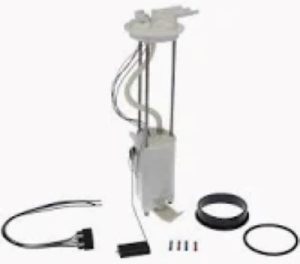Hard shifting cannot be directly attributed to any fuel pump, since shifting is done via the transmission and based on a transmission control module and engine control unit. But poor acceleration, misfires, and uneven fuel pressure are symptoms of a failing fuel pump that might appear to point to shift problems. If it is too hard for the fuel pump to provide pressure for the supplying of fuel, the engine will not get a smooth flow. Without that smooth flow, the car may feel sluggish or make jerky movements; such signals are taken by some drivers as hard shifting.
Low fuel pressure makes engines respond differently, and this impacts negatively on the coordination between the ECU and TCM. In case the ECU recognizes a low supply of fuel, it may try to compensate by changing the time and injection of fuel. The changes in fuel pressure indirectly affect shifting smoothness. Drivers who have felt the fuel starvation from a lousy fuel pump may note that shifts are less predictable than before, especially while going uphill or trying to accelerate hard. Reports indicate that the hard "shift" due to engine performance inconsistencies might increase by as high as 15% in those vehicles with fuel pressure problems.

An erratic idle speed can also be brought about by a low flow of fuel, which alters normal parameters at which the engine operates. Inconsistency in these idles strains the transmission as explained, in particular, automatic cars, which need a suitable range of idle speeds for proper transit of shifts. Most mechanics have said that hard shifts have something to do with checking fuel pressure and the condition of the fuel pump to rule out fuel delivery problems that could be one of the contributors to this phenomenon.
Can a fuel pump cause hard shifting? In and of itself, a fuel pump cannot actually cause hard shifting. However, any deficiency in fuel pressure may give rise to certain engine performance-related problems that can feel like symptoms of hard shifting any time the fuel pump fails to keep up with acceleration or hill-climbing demands. Addressing faults in fuel delivery ensures seamless performance and ensures the transmission continues to operate within its envelope of design.
